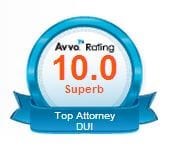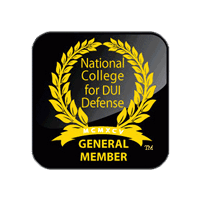Blood Alcohol Concentration Does Not Prove Impairment
Blood alcohol concentration or BAC is a just number produced by a machine. This number is important to the State of North Carolina and the Department of Motor Vehicles. However, juries should question any number unless the person’s conduct on video reflects the reported BAC. Breath testing “science” is inherently flawed and can be successfully challenged in court. At trial, our Charlotte DWI lawyers discuss the problems with any machine and the EC/IR II in particular. Then, we ask juries to use their common sense and trust their own eyes and ears. If the person charged does not appear to be “impaired,” the jury should disregard the blood alcohol concentration and render a verdict of not guilty.
Blood Alcohol Concentration Is Not Conclusive
G.S. 20-138.1(a)(2) makes it illegal to drive a vehicle on a highway, street or public vehicular area to have a blood alcohol concentration of 0.08 or more at any relevant time after the driving. After December 1, 2006, S.L. 2006-253 amended the law to include “[t]he results of a chemical analysis shall be deemed sufficient evidence to prove a person’s alcohol concentration.” The court of appeals in State v. Narron, 193 N.C. App. 76 (2008) clarified the “shall be deemed” provision did not establish a mandatory presumption. Instead, it only defined a prima facie standard under the per se prong of G.S. 20-138.1. Most importantly, Narron stated the “results of a chemical analysis are sufficient evidence to submit the issue to the fact-finder” who “may find it adequate proof.” Id. at 81, 84.
 Impaired Is Not Drunk
Impaired Is Not Drunk
At trial, prosecutors argue that the State only has to show impairment. And, a blood alcohol concentration reading of 0.08 or greater satisfies the statute. They rely on State v. Arrington (August 16, 2011), which held “it is not necessary for the State to prove that the defendant was appreciably impaired, uncooperative, or driving in an unsafe manner in order to prove that defendant is guilty of a violation of N.C. Gen Stat. § 20-138.1(a2). To prove guilt, the State need only show that defendant had an alcohol concentration of 0.08 or more . . . .” Nevertheless, this last element can be still be defeated if the jury questions or disregards the BAC number. Thus, we have to show that the State’s number cannot be trusted. So how do we do this?
“Legal Limit” is Arbitrary
Most people know that 0.08 is the most recent “legal limit.” For years, it was 0.10, and you could drink at age 21. The National Highway Traffic Safety Administration (NHTSA) conducts research and then makes recommendations. Although the current “legal limit” is 0.08, there are groups that want to lower it again. This time, the new proposed limit would be 0.05. As you can see, the “number” is a moving target and arbitrary. It has very little to do with actually being “drunk” or “impaired.” Alcohol affects different people differently. That’s why we focus at trial on how a client appears on video. If they don’t slur their speech or appear unsteady, they are not guilty of a Charlotte DWI offense.
 Breath Testing is Not Reliable
Breath Testing is Not Reliable
Although police prefer the term “instrument,” breath testing equipment is still just a machine. A rose by any other name… And all machines have inherent flaws. For example, all machines make assumptions. Before testing, the machine assumes everyone is the same height and weight. However, a person’s body mass will affect the BAC reading and how they react to alcohol. Next, the body temperature has to be the same. But, if you have a fever, every degree of body temperature increase can cause a 7% change in the breath test result. Also, breath test machines use a “partition ratio” of 1:2100. In reality, human partition ratios can vary significantly from 1:1500 to 1:3400. Finally, any BAC reading shows your blood alcohol concentration at the time of testing but not when you were driving. After all, driving is what matters.
Aaron Lee PLLC
We are DWI lawyers here in Charlotte. Our practice focuses on DUI cases, and we practice our trade everyday. As part of our commitment to DWI, all of our North Carolina DWI attorneys have completed NHTSA police training. We have certificates in DWI Investigation and Standardized Field Sobriety Testing. We feel it is important to know what they know. Then, we can challenge results if the tests were not given properly. Our DWI lawyers are trial attorneys first. And we are not afraid to go to trial and fight for our clients in court. Plea or trial. It is always the client’s choice. Before you decide, we will explain your options and make recommendations. Then, you can make the best decision for your situation. Call us today and let’s see what we can do to help.

 Impaired Is Not Drunk
Impaired Is Not Drunk Breath Testing is Not Reliable
Breath Testing is Not Reliable